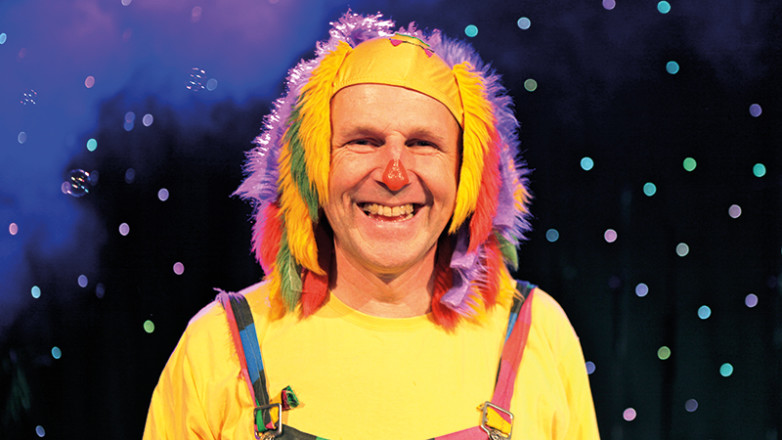Graeme Frauenfelder, 56, didn’t realise until he was an adult that he was the victim of a mental health problem that affects 1.8 per cent of Australian males and 1.7 per cent of females. He’d assumed that his feelings were typical of any kid. But Graeme’s problem has a name. It’s bipolar disorder, which used to be called manic depression. Bipolar disorder is characterised by ecstatic highs and dark lows. Graeme has been hospitalised a number of times because of it. Fortunately, he’s now able to better manage it.
The median age for the diagnosis of bipolar disorder is just 25 years. However, the illness often starts in early childhood, as it did with Graeme, even though he didn’t recognise it until adulthood.
“I didn’t identify as depressive or bipolar,” he says, “because it was just my normal experience. I didn’t know any different. In a college psychology class, when we were asked about experiences of depression, I was the only one who said I’d never been depressed. But I happened to be in one of my years of high at the time. I felt elated and failed to remember the deep lows of the past.”
Yet thinking back, Graeme now realises that the previous year he’d had deep dark times when he wanted to die. Violence from strangers at a young age was a contributing factor. It developed in him a deep-seated fear that caused him to feel the world was unsafe. “I’ve often felt like a failure,” he says, “because I wasn’t able to do what so many other people were doing with their lives.”
Nevertheless, Graeme has found ways to do “beautiful things” in the world. One way he has done this is through clowning, which he fell into by accident rather than by design. There he found his zone of delight. Graeme may sound like he epitomises the sad clown on the inside with the smiles, laughs and colour on the outside. But the fun, love and friendship are a real part of him. He has performed on most continents and at many high profile events. Brightening others’ lives has helped him to keep his sanity and given him a purpose in life.
Several life-threatening traumas impacted him throughout his life, including the deaths and near deaths of six people close to him, all within a few weeks, some two years ago. He now wonders how anyone, even someone with the most balanced personality, could have made it through.
“I’ve had a number of traumatic experiences from a young age through to recent years that have left their marks on my life,” he says, “but in recent years I’ve sought out the help that’s available and that I can afford. And having gone through the tough times and the healing journeys, I’ve gained many gifts: insight, empathy, compassion, and many emotional and other life skills.”
Because of the intensity of caring for his elderly parents and their health challenges and his, Graeme hasn’t had a chance to do clowning overseas for several years. “I miss those experiences,” he says, “and I believe the time will come when I can do it again.”
He remwembers clowning in homes in India for women, men, and children who had leprosy and other physical and mental disabilities. He recalls bringing happiness to people in shock, grief and boredom in a displaced persons’ camp following an earthquake in China. He remembers volunteering with a local creative development worker in African villages and bringing joy to children in Cambodia.
One of Graeme’s favourite quotes is by Howard Thurman, who was a mentor to Dr Martin Luther King. “Don’t ask what the world needs,” Thurman said. “Ask what makes you come alive, and go do it. Because what the world needs is people who have come alive.”
Reflecting on that, Graeme says that “in part, depression occurs because we’re neglecting parts of ourselves because we’re attempting to fit in. Conforming to the expectations of friends, family, work, school, church and society causes us to ignore ourselves. In the roller-coaster of life we suppress the parts of us that make our hearts sing and bring joy to our souls. When the soul is heavy and sad, there isn’t much motivation to get better.
“But to remember and reclaim what makes us come alive is very healing and gives meaning to life again. Recognising this—seeking that which is life-giving and life-renewing—has been one of the main keys to my own healing. It’s contained in a favourite quote of my father’s—the words of Jesus—which in paraphrase say, ‘I have come to give you life, and for you to have it more fully’” (John 10:10).
Depression can be caused by many factors, but they’re all life-diminishing. Graeme says that awakening the spirit of life within is the key to healing and recovery. “It’s different for each person, I know, and it isn’t something that can be externally imposed. Rather, it’s a journey. Depression is an illness of loneliness, withdrawal and isolation, so to try to find the healing on our own is tough.”
Graeme’s journey of healing and ongoing recovery really began when he reached out for significant and frequent support. He found places and groups of acceptance, understanding, encouragement, love and friendship. Sometimes it took all the emotional and physical energy he had to get there, but once he did, he was so glad for the difference it made.
A counsellor once advised Graeme that at the beginning, the journey of recovery would seem slow, hard and never-ending—she encouraged him to stick with it, because “the joy will come. Life will come back. You’ll find what you thought would never be possible again.” “Her words kept me going,” he says. “She was right, as I’ve discovered, and she spoke from her own experience.”
In his earlier years Graeme sought help when he was in a bad place, and he’d experience some healing and get back on with life. But over time things would run down again. He’d go back to his old patterns of roller-coaster living. Then, when a severe blow or series of blows came, they’d knock him down. But he learned that he needed to be on a lifelong journey of continual healing and recovery so that he didn’t fall back into the old patterns, so that he didn’t end up going far too close to the edge and crashing again. “I’ve learned to keep learning, to look at others who’ve gone before me and made it, and whose lives are now thriving and flourishing.”
Some time ago Graeme checked himself into a healing centre because he could see that he was about to reach a breaking point again. He felt overwhelmed by years of dealing with too much tough stuff followed by an avalanche of trauma that hammered him blow after blow.
“I had no idea how different things could be with treatment,” he says. “I’m so glad that I kept at it, and now I’m reaping the rewards! I now can say it: life is beautiful! I can also say from experience that life can also be tough and unfair—but there are ways through. A major lesson for me was not to ‘tough it out’ but rather to ‘reach out.’ I’m surprised how much better I am. I know that there’s more learning, healing and growing for me as I find the resources I need for the ongoing journey of my life toward thriving and flourishing.”
8 things I learned while recovering from depression
1. Reach out early
Seek help well before it gets tough. Don’t wait until you’re on the edge when things get so big as to be overwhelming.
2. Don’t try to tough it out alone.
We usually try to lift ourselves out of depression on our own.
3. Find out what professional resources are available to you.
Seek professional help as soon as you start slipping.
4. Be kind to yourself.
I’m good at being kind, compassionate and understanding with others. Healing professionals reminded me to treat myself the same way.
5. Do whatever it takes.
I haven’t stopped looking for answers and assistance. It’s paying off.
6. Seek out people who understand.
I tried to find people who could understand what I was going through. But I realised not everyone could, because they hadn’t lived my experiences. I got understanding from others who had.
7. Depression is an illness of loneliness.
We isolate ourselves when we’re depressed. It was only after a breakdown, having left a centre for healing, that I realised how easy it was to fall back into this old habit. So I made sure I was at a support or recovery group every day of the week, around supportive, encouraging people.
8. Healing has its own timetable.
Give yourself permission to rest and sleep, to be “non-productive,” and simply chill out.








